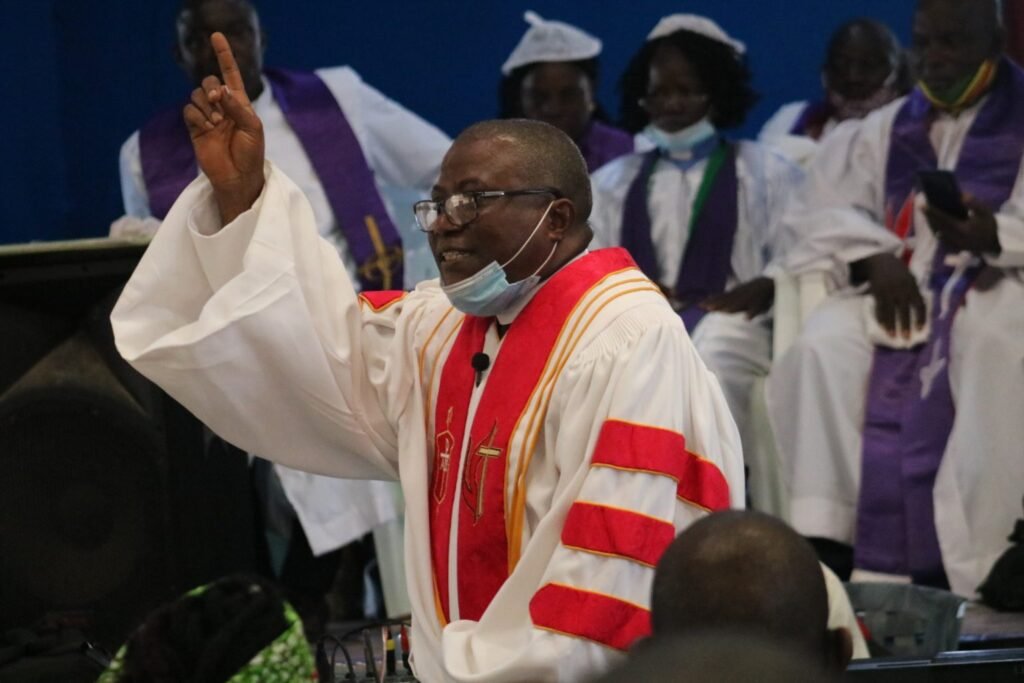Monrovia, Liberia – In response to rising rumors about the acceptance of homosexuality within the United Methodist Church (UMC) in Liberia, Bishop Samuel Quire has firmly stated that the church has not made any decisions to endorse same-sex marriage. His comments come amid speculation following claims that a same-sex marriage ceremony occurred in one of the church’s congregations.
During a news conference on Monday, Bishop Quire addressed the situation, emphasizing that while the UMC’s United States chapter has allowed its global branches an 18-month period to make decisions regarding same-sex activities, the UMC in Liberia has no intention of accepting same-sex marriage. “The rumors suggesting that the United Methodist Church in Liberia has embraced homosexuality are unfounded,” he asserted. “We stand by our traditional values, and there has been no decision made in favor of same-sex marriage.”
The controversy surrounding this issue has placed Bishop Quire under significant scrutiny, especially given the UMC’s recent annual conference in the United States, where discussions on same-sex marriage were prominent. Bishop Quire acknowledged that the church’s mother body has accepted same-sex marriage, but he reiterated that the Liberian branch remains committed to its conservative views.
“The United Methodist Church in Liberia has a distinct cultural and social context, and we believe it is essential to uphold the beliefs of our congregations,” he explained. “While we respect the decisions of our U.S. counterparts, we are not prepared to follow that path at this time.”
Bishop Quire’s comments come at a time when many religious institutions worldwide are grappling with the challenges of modernity versus tradition, particularly concerning issues of sexual orientation and marriage equality. The UMC in Liberia aims to maintain its doctrinal stance while navigating the complexities of societal changes.
As the discourse on LGBTQ+ rights continues to evolve globally, Bishop Quire’s clear position reflects the ongoing tensions within the church regarding inclusivity and tradition. The church’s leadership is expected to remain vigilant in addressing these issues, ensuring that its members understand its stance amidst changing global attitudes toward homosexuality.

